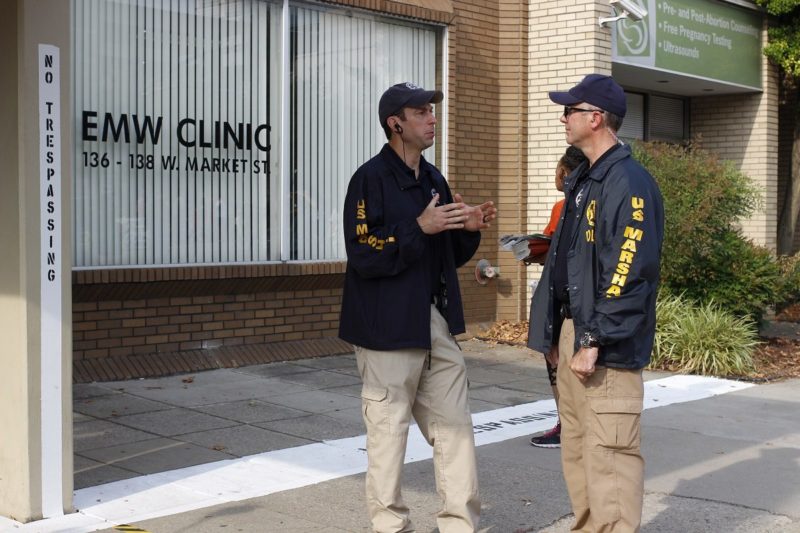Anti-Choice Lawmakers’ Attacks on Independent Abortion Clinics Are Working
Fifty-six independent abortion clinics have closed over the past two years, and 145 have shut down since 2012.

A fight is raging in Louisville, Kentucky, where the extremist anti-abortion group Operation Save America aims to shut down the state’s last remaining abortion clinic.
A new report suggests the anti-choice assault in Kentucky isn’t an isolated event. In the past five years, almost one-third of independent abortion clinics have been forced to close, according to a new report out Thursday by Abortion Care Network, a national association of independent providers.
The report suggests that while independent clinics provide the majority of U.S. abortion care, “anti-abortion politicians and extremists are forcing these clinics to close at an alarming rate,” said Nikki Madsen, executive director of the Abortion Care Network.
Independent clinics are the chief providers of abortion care in the United States. Three in five people ending a pregnancy go to an independent clinic, according to the report. And independent clinics perform 60 percent of U.S. abortions—nearly double the share performed by Planned Parenthood, which has more fundraising might and greater name recognition.
Due to their small size and sometimes isolated locations, independent providers, the report notes, “are also most vulnerable to anti-choice attacks (including anti-choice legislation, harassment, and violence), funding restrictions, and other attempts to close clinic doors and make abortion unavailable.”
The 12-page report paints a bleak picture of the state of abortion access at the nation’s remaining independent clinics. Fifty-six clinics have closed in the past two years, and 145 have shut down since 2012, leaving 365 left in the United States. Texas, a state leading the nation in harsh anti-abortion restrictions, saw the most independent clinics close: 20. But progressive states like California also had a high number of closures—15 between 2012 and this year.
Today, Kentucky and four other states—Mississippi, North Dakota, West Virginia, and Wyoming—are down to a single independent abortion clinic. In Arkansas, Oklahoma, Georgia, and Nevada, independent clinics are the sole providers of surgical abortions after 10 weeks. Without these clinics, the report suggests, the only option for pregnant people would be a medication abortion. Independent clinics are also more likely to offer abortion at every stage of pregnancy.
“Independent abortion care providers are integral to abortion care access in the United States,” said Ibis Reproductive Health’s Caitlin Gerdts in a statement. “Without them, access to abortion care after 19 weeks would be nearly non-existent.”
The dwindling supply of clinics comes as the U.S. abortion rate has fallen. Even so, the report notes those hit hardest by the closures come from historically marginalized communities and are most likely to be people with low incomes and people of color. Nearly half of those who end their pregnancies live below the poverty line.
“For more than two decades, Feminist Women’s Health Center has been battling invasive anti-abortion laws in Georgia, as we continue to provide quality care with dignity and respect,” Kwajelyn Jackson, community education and advocacy director with the Feminist Women’s Health Center, said in a statement. “We are part of this community, and committed to the health of our patients and neighbors. That’s why we’ll keep fighting to keep our doors open.”
